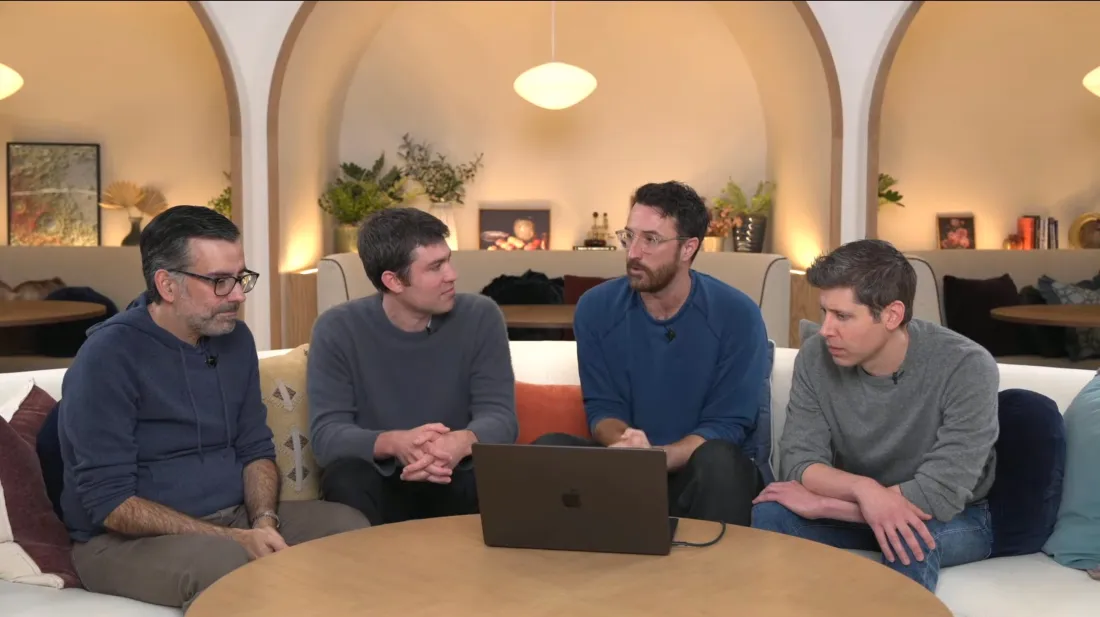


“We believe AI offers a rare, once-in-a-decade opportunity to redefine what a browser can be,” Altman said. “Just as the URL bar and search box once shaped how people used the internet, we’re now seeing chat and browsing merge into a new, faster experience.”
His message struck an inspiring tone reminiscent of Steve Jobs. Yet, beyond introducing a new browser, Altman was also clearing the path for a broader transformation — sweeping away not just outdated browsers but an entire generation of internet tools soon to be overtaken by AI. As he described it, these represent “the previous way people used the internet.” And notably, many of those soon-to-be outdated products stem from one dominant source: Google.
OpenAI’s browser project has been one of Silicon Valley’s worst-kept secrets since at least the summer, and from the start, it was clear it could pose a major threat to Google, the current leader in the browser market. But Tuesday’s launch and presentation made the stakes unmistakably clear — revealing how much Google stands to lose in the age of AI and how little its Gemini success seems to offset that risk.
The immediate challenge is straightforward: ChatGPT already attracts about 800 million weekly users, and if even a fraction transition to Atlas, they’ll likely abandon Chrome in the process. While Chrome is a free product, losing users weakens Google’s ability to target ads or funnel traffic toward Google Search — a significant blow, especially since the U.S. Department of Justice recently banned Google from entering new search exclusivity agreements.
Then comes the way OpenAI reimagines search itself. AI has already disrupted traditional web search by delivering synthesized information instead of ad-driven content. During the livestream, Atlas head of engineering Ben Goodger — a key figure behind both Firefox and Chrome — described this as a complete shift in how people interact with information online.
“This new approach to search is incredibly powerful,” Goodger explained. “It’s conversational and iterative — allowing you to engage in a back-and-forth with your search results instead of simply being directed to a webpage.”
Naturally, Google has made major efforts to weave AI into its traditional search experience — but it has largely treated it like any other feature, adding AI-generated summaries or information boxes to search results. OpenAI’s approach, however, goes far beyond that. Its interactive, conversational search experience is unlike anything Chrome currently offers, and its fundamentally different design makes it difficult for Google to replicate. If users embrace OpenAI’s chat-driven search model, it could seriously challenge Google’s long-standing dominance.
Then there’s the issue of advertising. While OpenAI hasn’t yet introduced ads, it has been careful not to dismiss the idea entirely. The company’s growing list of adtech job openings has only intensified speculation that an advertising shift could be coming. With Atlas, ChatGPT now has the ability to pull contextual data directly from a user’s browsing activity — a goldmine for targeted advertising. This level of access, effectively allowing the system to read what’s on your screen in real time, is unprecedented. After years of privacy controversies, however, it’s also the kind of data users may hesitate to hand over to companies like Google or Meta.
Atlas is still in its early phase, and much depends on how well the product performs — and whether users actually find value in what OpenAI is offering. Still, the company’s direction appears notably pragmatic, focusing on user engagement and potential revenue rather than distant ambitions around AGI. As analysts debate whether OpenAI’s massive $300 billion data center investment can eventually pay off, products like Atlas may provide the first real clues.